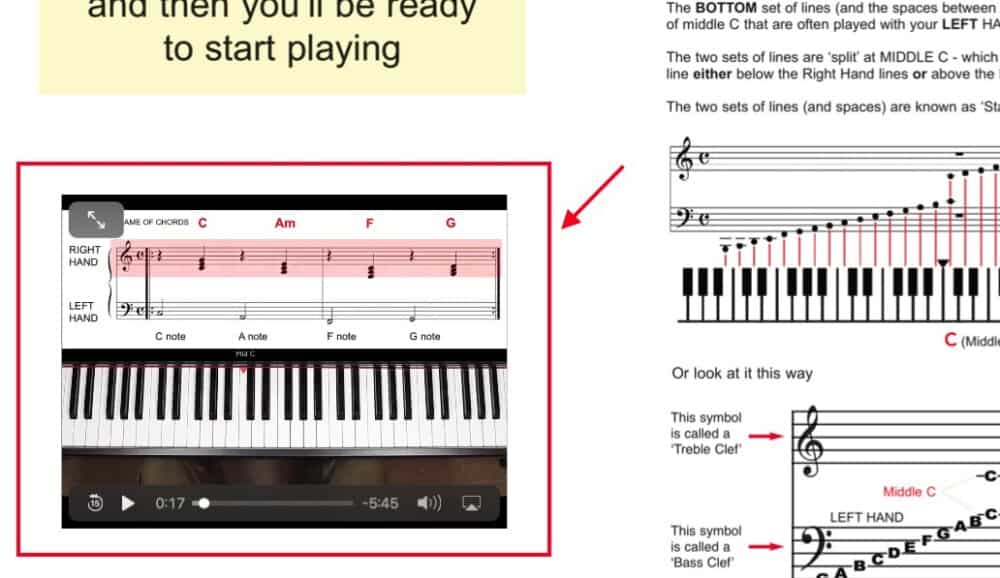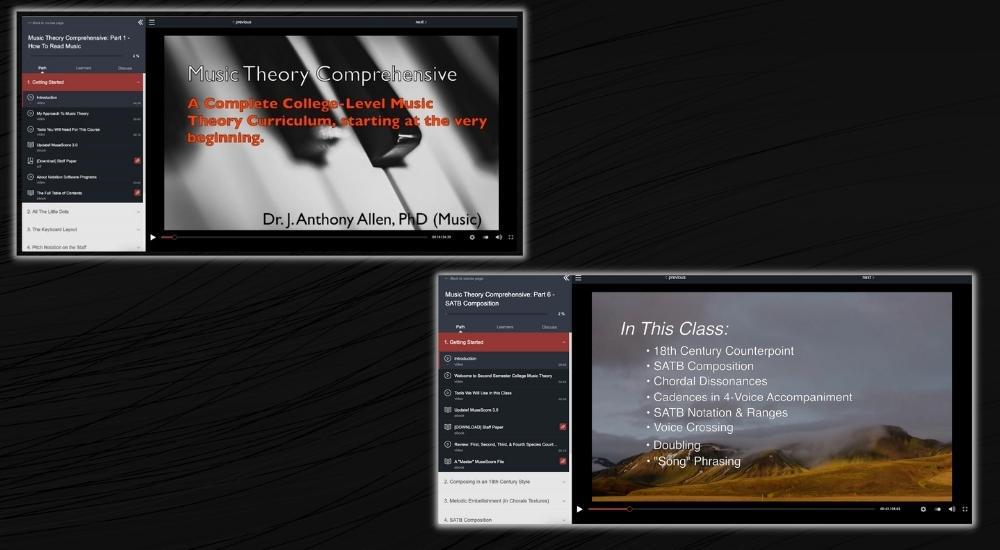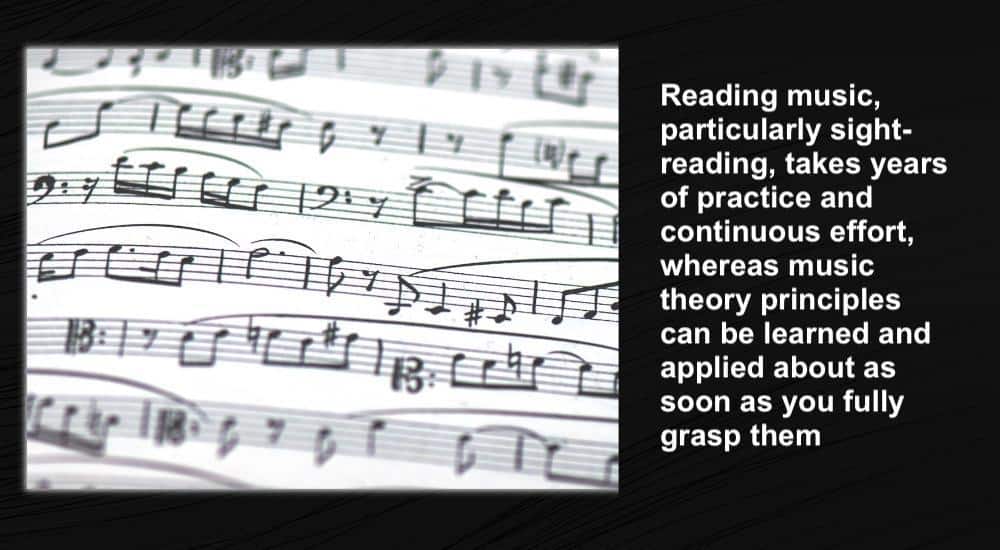Sometimes learning one instrument is easier than the other, but either way, applying the same principles to both instruments should be pretty helpful and also fairly fun. How would you go about learning two instruments at the same time?
To learn two instruments at once, you’ll need a structured program that you can dedicate at least 30 minutes to one hour per day of practice per instrument. Having an instructor is a great way to expedite this process and take note that some instruments complement each other more than others.
Guide to Learning Two Instruments at Once
1) Choose Your Instruments
![Musical Instruments - How to Learn Two Instruments At Once [Full Guide]](https://producersociety.com/wp-content/uploads/2021/11/Musical-Instruments-How-to-Learn-Two-Instruments-At-Once-Full-Guide.jpg)
You may already have an idea of which two instruments you would like to play. Most people want to learn piano and guitar. Some choose guitar and bass because they are both stringed instruments and are very similar when it comes to playing them.
The best two instruments for you to learn are whatever will benefit you the most right now and whatever you’re the most interested in, however, I would say that the instrument with the most utility is the piano because of its relationship to music production (PianoForAll is great for learning it btw and I’ve recommended it before).
It’s worth stating though that if you’re not interested in the instrument you’ve chosen, you probably won’t stick with it so make sure you choose the one that inspires you the most. For a lot of people, it’s the guitar, but it depends on the person.
There was a time when I was wholly convinced of the guitar’s superiority over every other instrument, but I’ve realized recently that the piano is probably the greatest instrument ever created which is something I also said in my guide to making beats.
2) Devote One Hour or One Half-Hour to Practicing Each Instrument Per Day
![Time-Management - How to Learn Two Instruments At Once [Full Guide]](https://producersociety.com/wp-content/uploads/2021/11/Time-Management-How-to-Learn-Two-Instruments-At-Once-Full-Guide.jpg)
And this is really where the brunt of the work is and what’s the most important. You can talk for hours and give all kinds of (essentially) useless tips but carving out the time for each instrument every day is what matters the most.
And the fact is that it doesn’t even have to be one hour. You could devote 30 minutes to learning each and over the course of a year, you would learn a lot. Practicing is the only way to get good at anything, and every instrument requires a lot of practice to use but especially to understand.
To make it easy and track your progress on both instruments, learn the same things on both. Time yourself, and don’t stop practicing until the timer is up. If you like what you’re doing, eventually you won’t even have to time yourself. You’ll get lost in playing for hours.
And, as I just said, a cool thing to do is to learn how to play something on one instrument and then learn the same thing on the other instrument.
You’ll learn a lot doing this kind of thing. Because the piano uses the bass and the treble clef, you’ll be set up to learn anything on the guitar as it uses the treble clef. Tablature is great for the guitar too.
The amount of repetitions helps more than the time you’ve spent, so make sure each repetition is clear and precise. Don’t just rush through your practice or mindlessly noodle. If you don’t think 50 minutes to an hour will be a good choice for you, then start with thirty minutes on each instrument and work your way up.
One tip that works great for me is to count it as practice even if it’s only for 5 minutes. 5 minutes of focused practice still counts as practice as me and that way, you can keep your habit solidified into your psychology which is really the important thing when learning any skill.
After you’ve taken one day off, it’s easy to continue taking days off until finally a month has gone by and you haven’t practiced.
The bottom line is this: if learning an instrument is your number one priority, just make it the most important thing that you have to do that day and then do it.
3) Get a Teacher (In-Person and Online)
![Emil Werstler - How to Learn Two Instruments At Once [Full Guide]](https://producersociety.com/wp-content/uploads/2021/11/Emil-Werstler-How-to-Learn-Two-Instruments-At-Once-Full-Guide.jpg)
Hiring an instructor at any level of your playing will help you in the long run. The second set of ears that knows the direction you should take in your playing is worth the money. They will give you real-time feedback and firsthand knowledge that can push you leaps and bounds in your playing.
Another big thing they can help you with are the blind spots you don’t know you have. A big one for me was not tucking my pinky into my palm while doing fast alternate picking and also using my shoulder too much to pick instead of my wrist (I learned this from this video from BERNTH).
If your shoulder gets sore, you’re not picking right and that’s the bottom line.
Make sure to get an instructor that you like and feel comfortable with and one that actually teaches the musical genre you want to learn.
Most music stores offer lessons, and there are even touring artists who teach online or in a city near you when they travel. You might even find that some of your favorite players give relatively inexpensive guitar lessons over Skype.
My advice to you is to get an in-person teacher and an online program like JamPlay because they have a lot more than just lessons. JamPlay has oodles of backing tracks, a weekly Q&A with instructors, and other great resources for players.
4) Get Piano For All, Sign Up for JamPlay and Punkademic
![Online Learning Platforms - How to Learn Two Instruments At Once [Full Guide]](https://producersociety.com/wp-content/uploads/2021/11/Online-Learning-Platforms-How-to-Learn-Two-Instruments-At-Once-Full-Guide-1.jpg)
If you are not wanting to hire an instructor but still want a decent learning path to take at your own pace, then Piano for All and JamPlay are great ways to start learning piano and guitar. Both platforms are straightforward to understand for even beginners and have helped hundreds of thousands of aspiring musicians.
PianoForAll

Piano for All is set up to be easy to understand and will keep you on track with its lessons. Piano for all has helped over 300,000 students worldwide decode playing piano with no instructor and can help you start playing today. Just get the program from their site and start playing.
There are nine interactive e-books with over 200 videos to keep you busy and focused.
JamPlay

JamPlay has a straightforward approach when learning guitar; you’ll start with Guitar Fundamentals and then go to your favorite genre next, whether that is Rock, Country, or Blues.
Instead of learning everything you don’t necessarily like, this puts you in the driver’s seat for a fast track to understanding your favorite songs and writing what you want to write.
Punkademic’s Music Theory Comprehensive Complete

I talked about this course a lot in my guide on how to learn music theory because I believe it’s the best way to learn music theory, period. Music Theory Comprehensive Complete has 21 parts and you can access all of them with Punkademic’s All-Access Pass.
Once you’ve gone through the course, I recommend getting Mark Sarnecki’s Complete Elementary Rudiments including the Answer Book. After you’ve gone through both of these programs you’ll absolutely have a solid grasp of music theory.
5) Learn Songs and Arrangements From Other Musicians

Really, this is the brunt of how most people learn how to play an instrument, at least it was for me and a lot of other musicians out there. When I was a teenager, for instance, I bought every Metallica transcription book I could get my hands on and I played through them religiously.
When you learn other people’s music, you will be able to apply all of that knowledge to your writing. Music has inspired you to become a musician, so try learning songs from your favorite artists and create your own music with their chord progressions or ideas you get from learning them.
It’s a great way to spark creativity and write exciting material. Additionally, a lot of amazing resources have made learning a lot easier and way better, with Guitar Pro being one of them. I can’t believe it took me over 15 years to buy this software. Now I use it every single day (get it here from Plugin Fox).
6) Apply The Same Concepts to Both Instruments

Like I said earlier, when you learn one thing on one instrument, there’s a good chance you’ll be able to apply the very same thing to another instrument but in a slightly different way.
For instance, arpeggios are a concept that you can learn and apply to both the guitar and piano. A C Major 7th is made up of the same set of notes whether it’s on the guitar or the piano.
Additionally, sometimes learning another instrument can help you recall what you learned easier. Techniques, scales, and chords can be similar enough on each instrument that you understand how it all works more than if you only learned on one instrument.
Your ear training will also improve the more instruments you hear specific scales and notes on.
Important Things to Note About Learning 2 Instruments
1) Don’t Be a Jack of All Trades and a Master Of None
It’s possible to learn two instruments at once, and if you want to be a virtuoso, or make your music with little help, then you need to have a good grasp of several instruments as well as basic recording. This may lead you into the adage “Jack of all trades, but a master at none.”
If you want to be known as a guitarist, then it’s probably better to stick to guitar and be really great at it. Learning an instrument is different than mastering an instrument.
Find the balance on where you want to be on each instrument because you won’t be able to master both simultaneously. Learning one fully may also help you become a great player and make it a lot easier to pick up a second or third instrument.
2) You Can Be Your Own Band
This may take a year or two, but it’s many people‘s dream to produce their own music. Learning the basics of drums, bass, guitar, and piano can help you a lot in the long run. For instance, I have a guide on how to create drums in Garageband, and in that article, I’ve walked you through some core ideas for programming drums.
The basics and some essential equipment, if you are creative enough, should be all you need to start recording and understanding how things go together. There are also a lot of YouTube videos out there to help you fast-track your way through learning as well.
3) You’ll Be More Creative
Each instrument has its place in a band, which will automatically make you more creative when you learn more than one instrument because you are also learning how everything works together. The guitar is different from the bass, but the piano uses both the bass and treble clef.
The drums are strictly rhythmic but the bass is in a spot where it often serves a rhythmic and melodic function, moreover, the bass and the kick drum work together a lot in popular music so knowing how to write a solid bass line that revolves around the kick is very useful.

 Written By :
Written By :